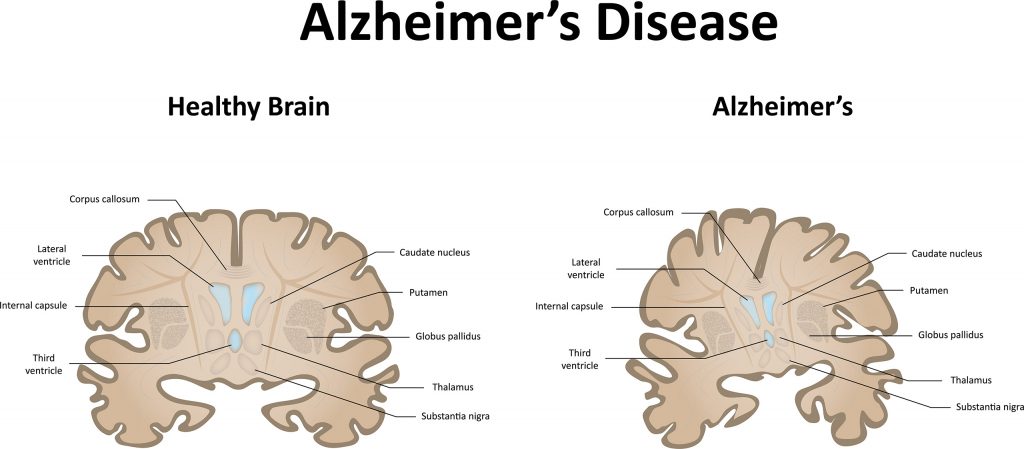Could cannabinoids have a role to play in developing Alzheimer’s cure?
Alzheimer’s Disease is the most common form of dementia, and accounts for around 50-70 per cent of all dementia cases. It is a progressive condition, with symptoms – including memory loss, confusion, spatial difficulties, obsessiveness, difficulty eating and more – steadily worsening over a number of years. The disease primarily affects people over the age of 65, though awareness of early-onset Alzheimer’s is growing.
How many people in the world are affected by Alzheimer’s?
According to Alzheimer’s Disease International, there are as many as 46.8 million people in the world living with dementia. By 2050, due largely to improved health care and a subsequent ageing global population, it’s estimated that this number will balloon to 131.5 million.
While a better understanding of Alzheimer’s has helped medical professionals to alleviate some of the symptoms associated with the disease and greatly improve the quality of life for patients, as it stands there is no known cure. However, a study recently published in Aging and Mechanisms of Disease indicates that cannabinoids – a class of chemical compounds found in marijuana – may have a role to play in helping scientists develop a treatment for Alzheimer’s.
Investigating medical marijuana’s potential as treatment for Alzheimer’s
A team of Salk Institute researchers conducted experiments on laboratory-produced neurons that had been grown to imitate certain elements of Alzheimer’s. They found that THC, along with other cannabinoids, facilitated the removal of amyloid beta, a chain of amino acids that are a critical component of the amyloid plaque which forms in the brains of those affected by Alzheimer’s.
Antonio Currais, first author of the study, explained that the THC effectively prevented cellular inflammation, resulting in decreased amyloid beta levels, which in turn enabled nerve cells to continue to survive.
“Inflammation within the brain is a major component of the damage associated with Alzheimer’s disease, but it has always been assumed that this response was coming from immune-like cells in the brain, not the nerve cells themselves,” commented Mr Currais, as quoted by Neuroscience News.
“When we were able to identify the molecular basis of the inflammatory response to amyloid beta, it became clear that THC-like compounds that the nerve cells make themselves may be involved in protecting the cells from dying.”

Healthy Brain Alzheimer’s Comparison
The future of medicinal cannabis and Alzheimer’s
This isn’t the first study to explore how medicinal cannabis could be used to help Alzheimer’s patients. Earlier this year, for instance, a study published in the Journal of Alzheimer’s Disease found that medical cannabis oil improved many behavioural and psychological symptoms of dementia, including delusions, apathy, irritability, aggression, sleep and caregiver distress.
What sets the Salk Institute study apart is that it’s exploring the use of marijuana as an Alzheimer’s preventative, rather than as symptomatic treatment. Of course, the research did involve some pretty significant limitations – most notably the fact that the study was carried out on lab-grown cells – but it still marks an important step forward for both the medical world and the medicinal marijuana industry. We can only hope that the findings of this study will serve as a foundation for more research into the complexities of Alzheimer’s and the role cannabis may play in developing a cure for this degenerative disease.
Sources
- http://neurosciencenews.com/thc-amyloid-beta-alzheimers-4598/
- http://www.nature.com/articles/npjamd201612
- https://www.alz.co.uk/research/statistics
